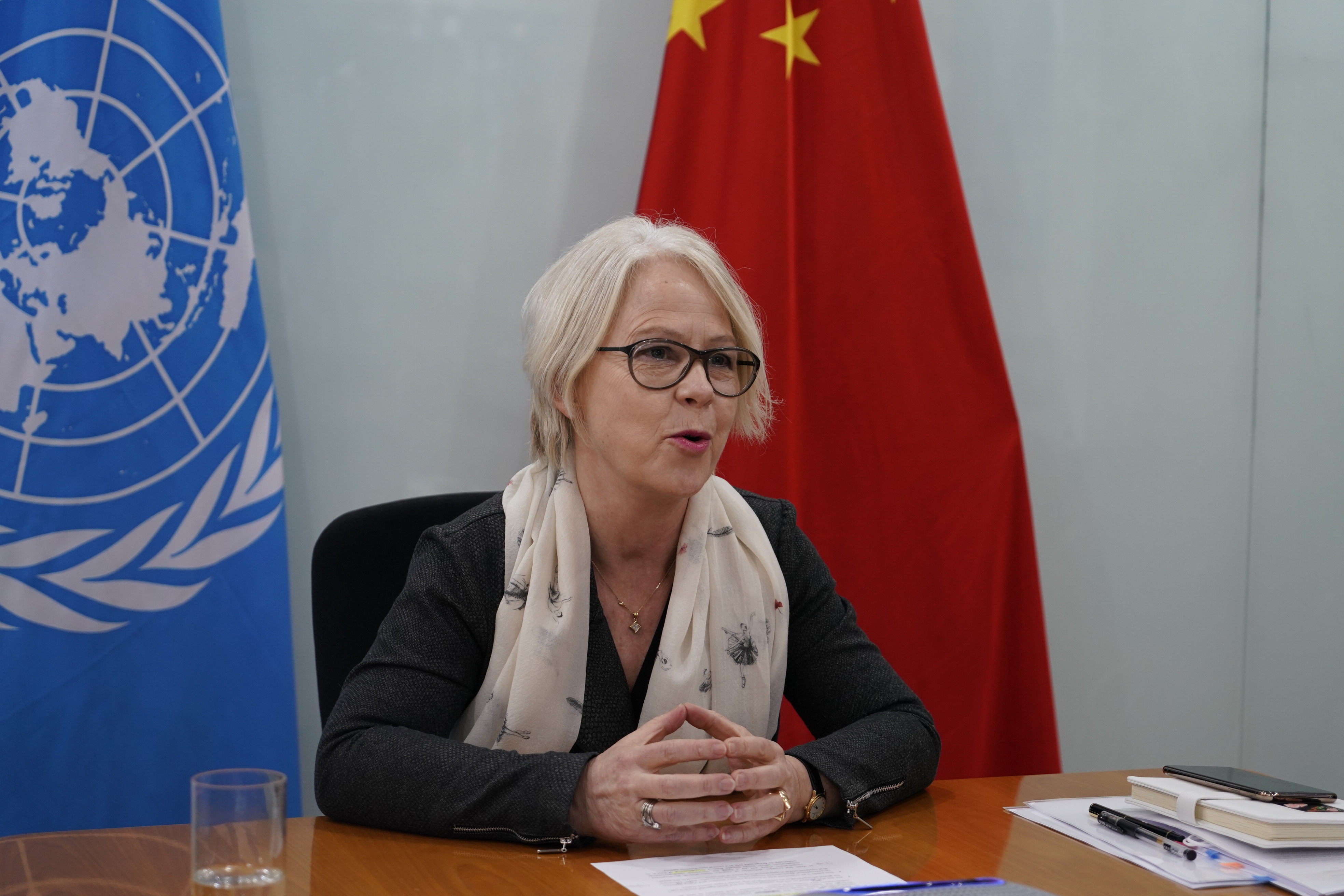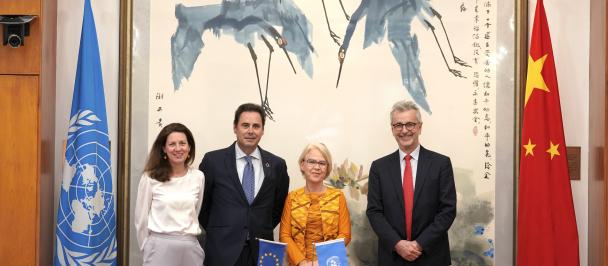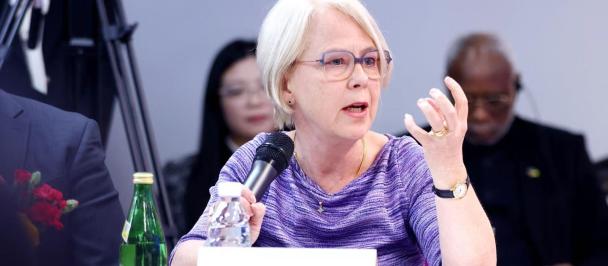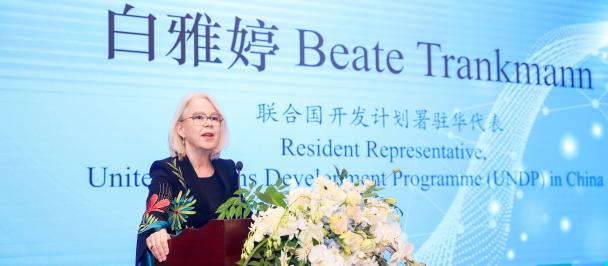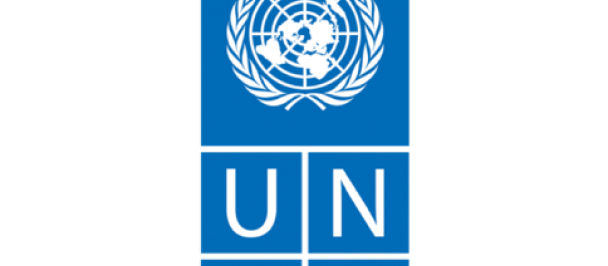Remarks by Ms. Beate Trankmann, UNDP Resident Representative in China
CIDCA’s Online Seminar on the White Paper
on “China’s International Development Cooperation in the New Era”
22 January 2021
尊敬的張署長,各位同事, 大家下午好。
On behalf of UNDP, I want to congratulate China on its 70th anniversary of foreign aid, as well as the recent release of the White Paper on China’s international development cooperation in the new era.
This White Paper comes at an opportune moment, as China is embarking on a new stage of its journey as an increasingly important provider of development cooperation. We commend the evolution and broadening of conceptual and strategic thinking articulated in the paper, from the mission and underlying guidelines of China’s international development cooperation to the focus, goals, modalities and mechanisms. As the paper says, this is about moving from “對外援助“ to “大援外觀” ( from aid to beyond aid).
In particular, we welcome the expansion of the development cooperation concept to cover South-South and Triangular Cooperation, including through SSCAF as well as collaboration with multilateral actors.
We are also pleased to see the explicit focus on the 2030 Agenda and the call for global partnerships in its support that the White Paper clearly makes.
This paper is an important step in framing China’s position and policy direction on international development cooperation. Allow me to offer four reflections that could be useful in operationalizing some of the ideas covered in the paper:
1) With the broader definition of China’s international development cooperation, there will be a need for increased cross-ministerial cooperation, which would benefit from a strengthening of CIDCA to undertake its designated role as a central coordination agency.
2) The WP highlights a few entry points for more detailed regulations across the entire project cycle. This provides a stepping-stone towards enhancing the effectiveness and transparency of China’s aid, which is welcome.
To this end, an integrated information management system for regular data collection and dissemination, leveraging technological innovation would be critical to enhance information flows and communication, and increase transparency between development cooperation providers. This should be considered along with a clearer set of definitions in tracking different categories of flows.
3) Legislative regulations and measures, critical for China’s aid implementation, are evolving and being revised. In adapting to the new definitions and modalities, there is an opportunity to build upon available international experiences, norms and good practices. China could benefit from drawing on the inputs and advice by international development partners including the UN.
4) UNDP stands ready to offer our expertise, experience and networks to China’s international development cooperation engagements. Working together with the UN and partner countries can also ensure that engagements meet local development priorities, through effective policy making and identifying projects that serve the most vulnerable. Through joint assessments, evidence-based case studies, consultations, and dialogues this can enhance development results to advance the SDGs.
In closing, I’d like to thank CIDCA and the Government of China for hosting this timely seminar with international and regional partners to enhance understanding on this important topic.

 Locations
Locations